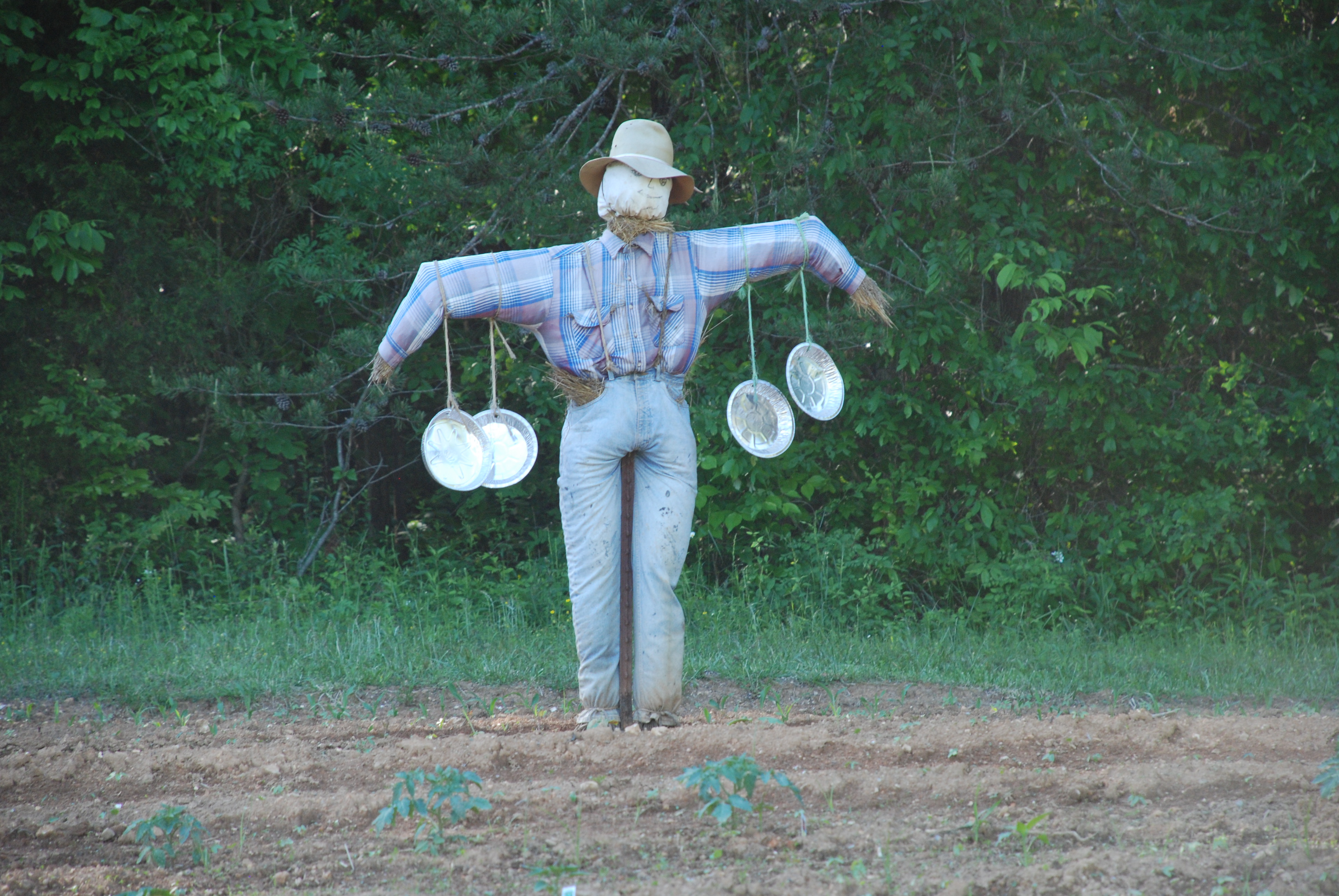
~ Vicki's Blog Archive ~
-- Welcome -- About Me -- Fiction -- Non-Fiction -- Poetry -- Inspirational -- Young Adult -- Kids -- Awards --
-- View -- Memoir -- My Garden -- Flowers -- Tea Time -- Photos -- Faq -- Blog -- Store -- Links --

Posted July 17, 2010
"FORGET THE WIZARD OF OZ"

I recently had a young man ask me about Bible doctrine. He said, "But the Bible's been translated so many times, it really doesn't mean anything now." Another woman said the same thing to me. Unfortunately, that's what a lot of people think these days.
I tend to disagree and reading the Bible fascinates me. I'm always interested in the writing style of each author who penned their book while under the influence of the Holy Spirit. The style of writing might change during the era in which they wrote, however, the same message flows throughout and the meaning of the entire story has never changed.
I recently read Jeremiah 10:5 in the NIV: "Like a scarecrow in a melon patch, their idols cannot speak; they must be carried because they cannot walk. Do not fear them; they can do no harm nor can they do any good." This verse is in a chapter about God and his views on idols and idol worship. In a later verse the message from God through Jeremiah is warning the people: "The shepherds are senseless and do not inquire of the Lord; so they do not prosper and all their flock is scattered." The people were relying on handmade gods they'd made from wood or cast from gold or silver. Those household idols had to be propped up or supported in niches by a railing to keep them from falling over.
I thumbed through the King James Version and found the same verse: "They are upright as the palm tree, but speak not; they must needs be borne, because they cannot go. Be not afraid of them; for they cannot do evil, neither also is it in them to do good.
As I was reading, I said, "So which is it? No wonder so many people are being confused!" When I looked up the words for scarecrow and palm tree in Hebrew - two entirely different things - I discovered they were actually the same word but with two definitions. The Hebrew word tomer means 1) date palm and 2) scarecrow. A word associated with tomer is tamar and means palm tree. When I thought about it, either way it's translated - scarecrow or palm tree - they both convey the same message. Palm trees stay in the same place just like scarecrows. They don't move. They might stand tall and erect, swaying a little with the wind, but neither get up and walk around and come to life. Well, maybe in fiction stories like The Wizard of Oz, but in real life - nonfiction - scarecrows have to be helped down from their poles every now and then to be restuffed. And then remember, Dorothy was only dreaming after she'd been hit on the head in Kansas during a tornado.
So then I thought, better see what the Apologetics Bible says: "Like scarecrows in a cucumber patch, their idols cannot speak. They must be carried because they cannot walk." Okay, now we have a scarecrow guarding cucumbers instead of melons. But when I thought about it, melons and cucumbers might have a different shape and look different, they still grow from a vine and have seeds inside. I began to think about baby believers or seekers reading that verse and giving up their studies because of the different translations. A verse like this is what weeds out the tares from the wheat. Either a person keeps digging for the true meaning and why the wording is different, or they give up and continue in the dark wearing garden gloves and hanging onto their spades and trowels while clicking together their ruby slippers and never knowing the truth. They're constantly saying, "There's no place like home," with no understanding of how to get back there.
It doesn't matter if there's a palm tree guarding an oasis of water, or a scarecrow guarding a patch of melons, cucumbers, or a few rows of Silver Queen corn. The meaning of the verse is still the same. Worshipping that scarecrow or a palm tree to keep evil at bay while trying to find the yellow brick road won't do a bit of good because they aren't capable of saving anyone. The yellow brick road will always be hidden in the forest and in real life, there will always be flying
monkeys and pointy-hat witches with green warts out to get us, figuratively speaking. God's message was, "The shepherds are senseless and do not inquire of the Lord; so they do not prosper and all their flock is scattered."
Just as poets and writers may have different thoughts and ideas about how to describe the soughing of wind
before a storm or the steady persistence of a January drizzle, so did the translators of the Bible when choosing the definition of a word that is the same but has
two different meanings. As long as the integrity of the verse doesn't change, either palm tree or scarecrow could
be used. The story is still intact. In its entirety, the message has the same meaning. God is still saying in essence, "Forget the Wizard of Oz - he's a charlatan with nothing but pretty words - depend on Me."